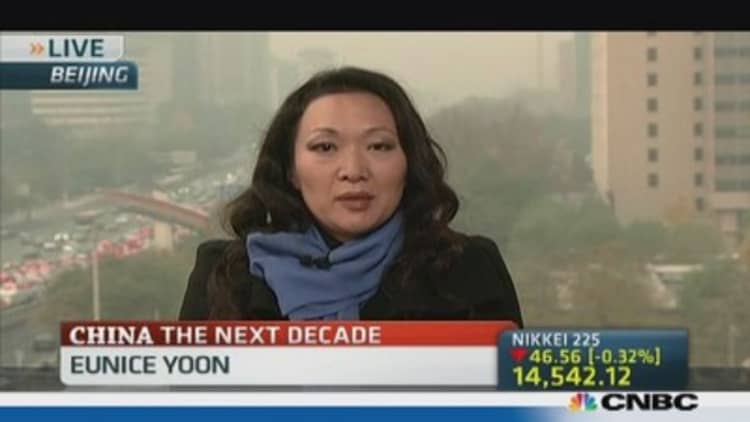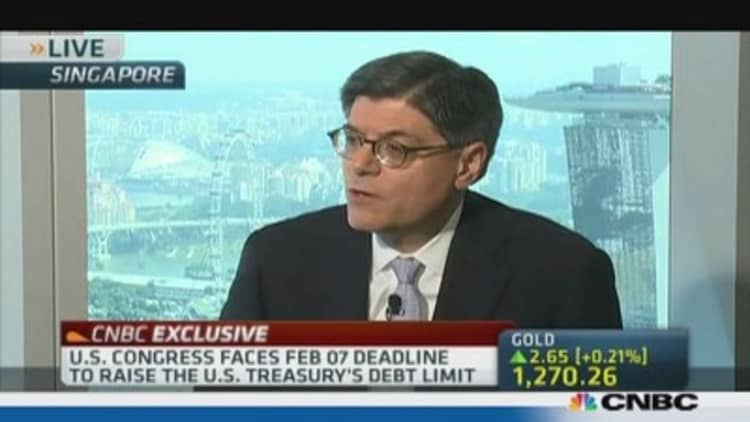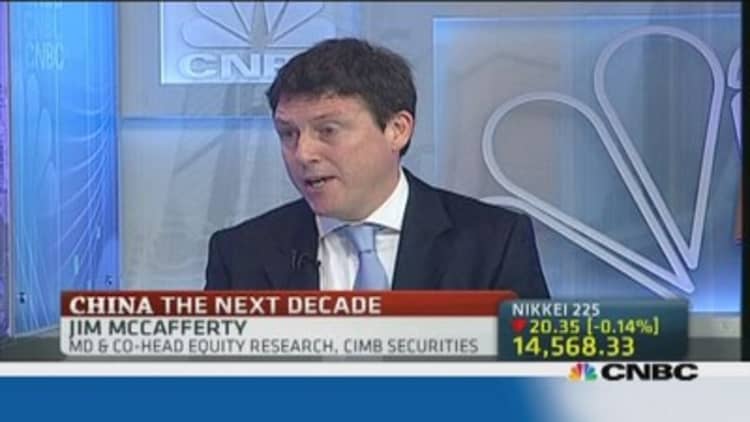
The bland statement following China's hotly anticipated Third Plenum meeting of the Communist Party's 18th Central Committee has left many analysts feeling flat, but some have warned against dismissing the vague statement.
Hopes were high for this year's plenum, especially after President Xi Jinping excited investors by talking up a "Master Plan" for reform, and as, historically, third plenums have marked major turning points in economic policy.
Following a third plenum meeting in 1978, for example, President Deng Xiaoping unveiled landmark reforms that triggered three decades of rapid economic expansion, but the importance of his plans were not widely appreciated at the time.
(Read More: China's early-bird investors are left holding the worm)
"Looking back at China's reform history, it was the decisive action that followed the third plenums of the 11th [1978], 12th [1984] and 14th [1993] Party Congress that made those meetings the turning points of the Chinese economy," said Wei Yao, China economist at Societe Generale.
"The plenum that just concluded has the potential to mark a new beginning of positive changes. Now having said what needs to be said, the new leaders should do what needs to be done," she added.
Although the 5000-word communiqué published on Tuesday, which precedes an official document set to be released in a week's time, has come under fire for its vague language and lack of concrete action, analysts have noted some important points were made.
(Watch This: China's one-child policy: More harm than good?)
Most notably, policy makers talk about how markets are set to play a more "decisive role" in the allocation of resources, a marked change from the old language assigning market a "basic" role. Meanwhile, the mention of the creation of a special committee tasked specifically with spearheading reform has also been viewed as an encouraging sign, along with the deadline for achieving decisive results by 2020.

Another important point analysts have noted is talk of reform to the nation's two-tier system of land ownership, which under current rules means farmers who move to cities are not able to sell land back home. Societe Generale's Yao described this development as a "major breakthrough."
However, a lot was left unsaid. In the run up to the plenum, many had hoped to see progress on opening up China's state owned enterprises (SOEs), a step seen by many investors as vital to fully opening up the economy, but the issue was not mentioned, along with any changes to the Hukou system (a residential registration system that ties citizens to their home towns).
(Read more: Saudi Arabia chases closer ties with China amid US tension)
Also, while the communique talked about improving the financial market system there were no specific references to banks, interest rates or the domestic currency.
Capital Economics chief Asia economist Mark Williams said it was "hard to get excited" about the Third Plenum communiqué, due to its lack of detail and its seemingly conflicting message.

He pointed out that many of the issues that required attention did get a mention, but that a conflict between giving the markets a greater role and the continued strong backing for the state, in terms of no progress on reforming SOEs, presented a confused message.
"Without a clearly-articulated vision to guide officials at various levels of government, we suspect that reformers will struggle to push piecemeal efforts against the opposition of vested interests," he said.
(Read more: China Singles Day could dwarf America's Cyber Monday)
However, Williams added that it was perhaps too soon to view the third plenum as a "flop," and it was important to see Tuesday's communique as just an overview.
Analysts at the Royal Bank of Scotland pointed out the communiqué following the plenum was about the "gradual reform...not about rapid change."
"On several specific areas of reform... this document says little. That does not mean that there is no scope for movement in those areas. The 'Decisions document' [the final document set to be released in a week] that is meant to follow is likely to discuss them," said the RBS analysts.
(Read more: China's new plan for growth—less government)
"It is too early to say whether the reform directions and orientations agreed at the plenum will meet the expectations in those closely watched areas," they added.
—By CNBC's Katie Holliday: Follow her on Twitter @hollidaykatie


